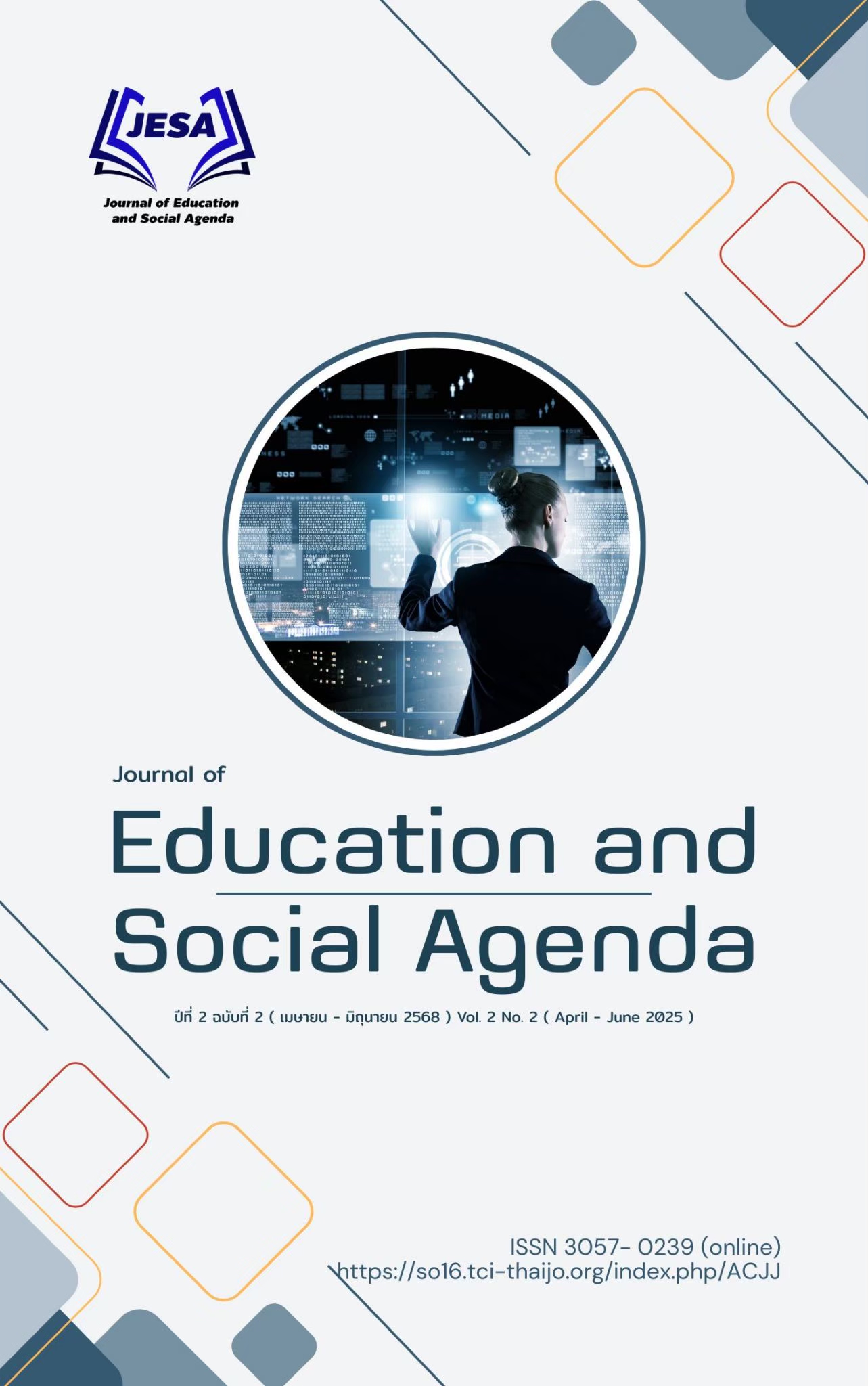Problem-based Learning: Enhance Analytical Thinking Skills in the New Era
Keywords:
Problem-Based Learning , Analytical Thinking Skills, Practical ApplicationAbstract
This academic article focuses on problem-based learning (PBL) to enhance modern analytical thinking skills. The study reveals that PBL is an instructional approach emphasizing the development of analytical thinking, problem-solving, and collaboration skills through learning processes that begin with real-world problems or challenging situations. Learners are encouraged to confront problems and collaboratively seek solutions. This learning model cultivates analytical thinking and promotes meaningful and practical learning experiences. Moreover, PBL effectively prepares learners to face contemporary challenges and changes confidently and competently. Applying PBL in the Thai education system can significantly enhance learners' potential and essential skills for development in an era of rapid information and technological change.
References
ทรูปลูกปัญญา. (2562). อะไรคือการจัดการเรียนรู้โดยใช้ปัญหาเป็นฐาน (Problem-based Learning: PBL). เข้าถึงได้จาก https://www.trueplookpanya.com/education/content/77414
ธีระพงษ์ สุขสกล. (2564). การพัฒนาชุดกิจกรรมการเรียนร้โดยใช้ปัญหาเป็นฐาน เรื่อง สมการเชิงเส้นสองตัวแปร. (วิทยานิพนธ์ครุศาสตรมหาบัณฑิต สาขาวิชาหลักสูตรและการสอน). คณะครุศาสตร์ : มหาวิทยาลัยราชภัฏรำไพพรรณี.
ประวิต เอราวรรณ์. (2560). การจัดการเรียนรู้โดยใช้ปัญหาเป็นฐาน (Problem-based Learning : PBL). เข้าถึงได้จาก http://www.ires.or.th/?p=801.
พัชรี นาคผง. (2562). การพัฒนาทักษะการคิดวิเคราะห์ของนักเรียนชั้นมัธยมศึกษาปีที่ 1 ที่จัดการเรียนรู้โดยใช้ปัญหาเป็นฐานร่วมกับเทคนิค STAD. (วิทยานิพนธ์ครุศาสตรมหาบัณฑิต สาขาวิชาหลักสูตรและการนิเทศ). คณะครุศาสตร์ : มหาวิทยาลัยศิลปากร.
วาสนา ตระการสุทธิศักดิ์. (2564). การพัฒนาความสามารถในการคิดวิเคราะห์ตามแนวคิดของ Marzano เรื่อง ภูมิลักษณ์ประเทศไทย ของนักเรียนชั้นประถมศึกษาปีที่5 โดยการจัดการเรียนรู้ด้วยกิจกรรมการคิดตามแนวคิดของ Edward De Bono. (วิทยานิพนธ์ครุศาสตรมหาบัณฑิต สาขาวิชาหลักสูตรและการสอน). คณะครุศาสตร์ : มหาวิทยาลัยศิลปากร.
ศศิมา สุขสว่าง. (2565). 5 ขั้นตอนคิดเชิงวิเคราะห์ (Analytical Thinking). เข้าถึงได้จาก https://www.sasimasuk.com/16697109/5-ขั้นตอนคิดเชิงวิเคราะห์-analytical-thinking.
อนุชา โสมาบุตร. (2556). การจัดการเรียนรู้โดยใช้ปัญหาเป็นฐาน. เข้าถึงได้จาก https://teacherweekly.wordpress.com/2013/09/25/problem-based-learning/.
อัญชลี แสงอาวุธ. (2566). วิทยาการจัดการเรียนรู้ Learning Management Science. คณะครุศาสตร์ : มหาวิทยาลัยราชภัฏสุราษฎร์ธานี.
อาภา วรรณฉวี. (2565). การคิดวิเคราะห์. เข้าถึงได้จาก https://bsru.net/การคิดวิเคราะห์/.
Allen, D. E., Duch, B. J. & Groh, S. E. (1996). The Power of Problem-Based Learning in Teaching Introductory Science Courses. In L. Wilkerson and Barell, John. (1998). PBL an Inquiry Approach. Illinois : Skylight Training and Publishing.
Barell, J. (1998). PBL an Inquiry Approach. Illinois : Skylight Training and Publishing.
Gallagher, S.A. (1997). Problem-Based Learning: Where did it come From, What does it do, and Where is it going?. Journal for the Education of the Gifted, 20(4), 332-362.
Torp, L. & Sage, S. (1998). Problem as Possibilities: Problem-Based-Learning Learning for K-12. Alexandria, Virgnia : Association for Supervision and Curriculum Development.

Downloads
Published
How to Cite
Issue
Section
License
Copyright (c) 2025 Asia Connect Journal

This work is licensed under a Creative Commons Attribution-NonCommercial-NoDerivatives 4.0 International License.
This article is published under a Creative Commons Attribution-NonCommercial-NoDerivatives 4.0 International License (CC BY-NC-ND 4.0), which allows others to share the article with proper attribution to the authors and prohibits commercial use or modification. For any other reuse or republication, permission from the journal and the authors is required.

